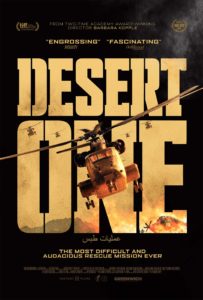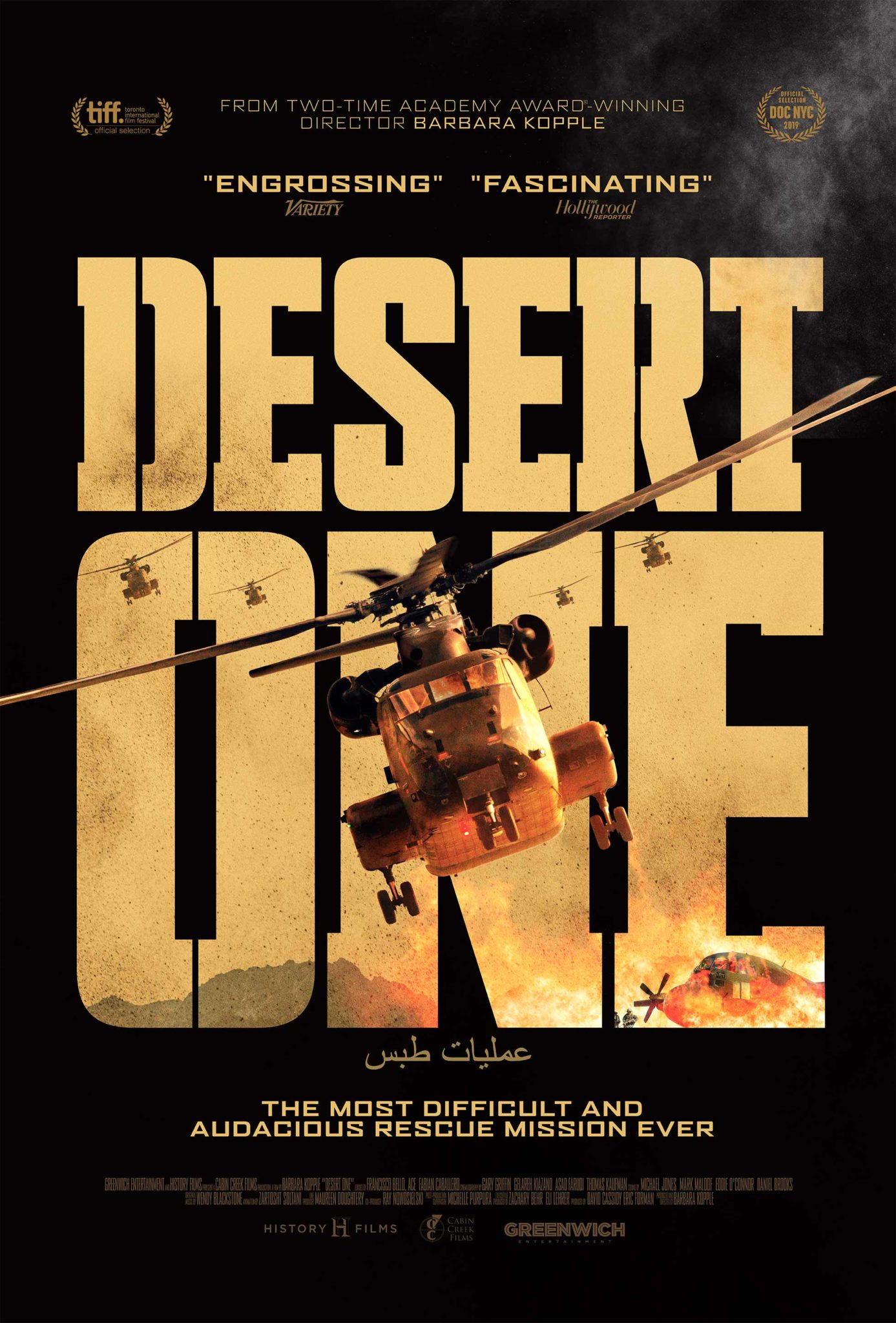 Unfortunately, I am old enough to remember the Iran Hostage Crisis of 1979-80; but the memories are vague. I recall watching Ted Koppel’s nightly updates (the precursor to Nightline), grieving over news of a rescue attempt gone awry, and celebrating the hostages’ return just as Ronald Reagan took the oath of office in January 1981 after a landslide victory over Jimmy Carter. Desert One recalls all of that – and much more. The documentary is both evocative and enlightening. It offers revealing details of the failed mission to rescue 52 Americans from the U.S. Embassy in Tehran, where they were ultimately held for 444 days. And it serves as a tribute to the sacrifice of eight servicemen who died when a helicopter crashed into a transport plane at “Desert One,” the staging area for the mission, which was in the process of being aborted when the accident occurred.
Unfortunately, I am old enough to remember the Iran Hostage Crisis of 1979-80; but the memories are vague. I recall watching Ted Koppel’s nightly updates (the precursor to Nightline), grieving over news of a rescue attempt gone awry, and celebrating the hostages’ return just as Ronald Reagan took the oath of office in January 1981 after a landslide victory over Jimmy Carter. Desert One recalls all of that – and much more. The documentary is both evocative and enlightening. It offers revealing details of the failed mission to rescue 52 Americans from the U.S. Embassy in Tehran, where they were ultimately held for 444 days. And it serves as a tribute to the sacrifice of eight servicemen who died when a helicopter crashed into a transport plane at “Desert One,” the staging area for the mission, which was in the process of being aborted when the accident occurred.
The film isn’t just told from the American perspective, however. It puts the crisis into context, with a brief explainer of events that led up to the 1979 Revolution and overthrow of the Shah, who was supported by the United States. It then delves into the takeover of the Embassy by Iranian student revolutionaries, the diplomatic pursuit of a peaceful resolution, and the daring rescue training mission that Carter secretly greenlit should negotiations fail.
The complex mission was months in the planning, but took just two days to fall apart due to a series of unfortunate events. The death of eight U.S. special forces in a fireball in the Iranian desert was a propaganda boon for the Ayatollah and his followers who viewed it as a victory and sign of divine intervention.
Two-time Academy Award winning filmmaker Barbara Kopple (Harland County USA, American Dream) weaves a mix of archival footage, photos, interviews, and first-rate animations into the documentary, as well as White House audio recordings of satellite phone conversations with operational commanders. It makes for an engrossing film punctuated with insights and reflections from President Carter, VP Walter Mondale, Delta Force members, hostages, captors, and others. Kopple employed an all-female film crew in Iran to gather footage for the documentary that also included an interview with a man who was an 11-year-old passenger on a bus that happened by “Desert One” the night the mission imploded.
Desert One is interesting, heartbreaking, and also inspiring. Despite the long odds of success, and the failure, the men who trained for the mission were a willing bunch determined to at least try to bring the hostages home.
The film opens in dozens of theaters/virtual cinemas on August 21, followed by a wide digital release (Apple TV+, Amazon, Google Play, YouTube, cable providers, etc.) on September 4. Check it out. Even if you aren’t old enough to have lived through it.

